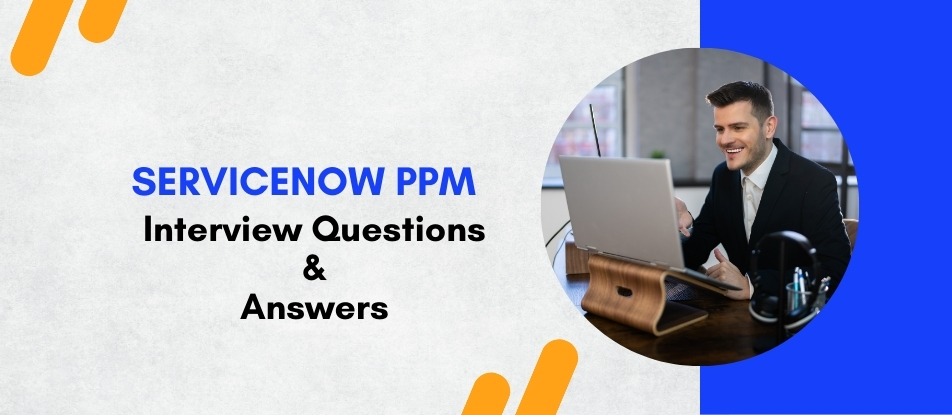
Master the art of project portfolio management with our ServiceNow PPM training course. This course offers in-depth knowledge on managing demands, resources, and financials within ServiceNow’s powerful PPM module. Participants will gain expertise in advanced reporting, scenario planning, and integrating PPM with other ServiceNow applications. Perfect for professionals looking to leverage ServiceNow PPM to streamline project execution, enhance governance, and achieve strategic alignment in their organizations.
ServiceNow PPM Interview Questions Answers - For Intermediate
1. Can you describe the role of a project manager in ServiceNow PPM?
A project manager in ServiceNow PPM oversees the project lifecycle, ensures compliance with timelines and budgets, manages team performance, and communicates with stakeholders. They are crucial in steering projects toward successful completion while aligning with organizational goals and strategies.
2. What are the key metrics tracked in ServiceNow PPM?
Key metrics in ServiceNow PPM include project health indicators such as budget variance, schedule variance, resource utilization, and milestone achievement rates. These metrics help evaluate project performance and guide decision-making processes.
3. How does ServiceNow PPM facilitate stakeholder communication?
ServiceNow PPM facilitates stakeholder communication through real-time dashboards, automated alerts, and scheduled reports. These tools ensure that all stakeholders have access to up-to-date information, enhancing collaboration and enabling prompt resolution of issues.
4. What is the impact of poor project governance in ServiceNow PPM?
Poor project governance in ServiceNow PPM can lead to project delays, budget overruns, resource misallocation, and ultimately, project failure. Effective governance ensures adherence to methodologies, standards, and regulatory requirements, which are essential for project success.
5. How does ServiceNow PPM support agile projects?
ServiceNow PPM supports agile projects by providing tools for iterative planning, backlog management, and sprint tracking. It allows teams to adapt to changes quickly, manage tasks efficiently, and improve collaboration among cross-functional teams.
6. Describe the benefits of using dashboards in ServiceNow PPM.
Dashboards in ServiceNow PPM provide a visual representation of project data, making it easier to monitor project health, track progress, and identify trends. They are customizable, allowing managers to focus on specific metrics that are critical for decision-making and operational efficiency.
7. What are the challenges of implementing ServiceNow PPM in an organization?
Challenges of implementing ServiceNow PPM include resistance to change, the complexity of integration with existing systems, and the need for adequate training. Overcoming these challenges requires effective change management strategies, clear communication, and continuous support.
8. How does ServiceNow PPM handle multiple projects simultaneously?
ServiceNow PPM handles multiple projects simultaneously by providing a consolidated view of all projects, enabling resource sharing, conflict resolution, and strategic alignment. This holistic approach helps in the efficient management and optimization of project outcomes.
9. What is a project roadmap, and how is it created in ServiceNow PPM?
A project roadmap in ServiceNow PPM outlines the key milestones and deliverables over the timeline of the project. It is created based on the project's scope, goals, and resources, providing a strategic plan that guides the project's execution and monitoring.
10. How does ServiceNow PPM contribute to cost reduction in project management?
ServiceNow PPM contributes to cost reduction by improving resource allocation, reducing downtime through efficient scheduling, and minimizing scope creep through better project controls. These efficiencies can significantly lower project costs and improve the overall financial performance of projects.
11. What is the role of custom fields in ServiceNow PPM projects?
Custom fields in ServiceNow PPM allow organizations to tailor project tracking and reporting to their specific needs. These fields can capture unique data points that are critical for the organization's project management practices and decision-making processes.
12. How do you ensure compliance with legal and regulatory requirements in ServiceNow PPM?
Ensuring compliance in ServiceNow PPM involves setting up project controls that align with legal and regulatory standards, conducting regular audits, and integrating compliance checks into the project lifecycle. This proactive approach helps in mitigating risks and ensuring projects adhere to all necessary guidelines.
13. Can you explain the process of project closeout in ServiceNow PPM?
Project closeout in ServiceNow PPM involves finalizing all project activities, releasing resources, documenting lessons learned, and evaluating project outcomes against the initial goals. It is a critical phase to ensure that the project's benefits are realized and to improve future project performance.
14. What is the impact of effective project scheduling in ServiceNow PPM?
Effective project scheduling in ServiceNow PPM ensures that projects are completed within the planned timelines, resources are utilized optimally, and dependencies are managed effectively. This leads to better project outcomes, higher stakeholder satisfaction, and reduced costs.
15. How does ServiceNow PPM handle project escalations?
ServiceNow PPM handles project escalations through structured processes that involve identifying issues, notifying relevant stakeholders, and implementing corrective actions promptly. This ensures that issues are resolved quickly and do not impact the overall project performance.
ServiceNow PPM Interview Questions Answers - For Advanced
1. Can you explain the concept of agile and waterfall methodologies within ServiceNow PPM and how both can be managed?
ServiceNow PPM accommodates both agile and waterfall methodologies, allowing organizations to manage projects according to the most appropriate approach for their needs. For waterfall projects, ServiceNow PPM supports detailed project scheduling, dependency tracking, and stage-gate approvals, which align with the sequential phases of waterfall methodology. For agile projects, it provides functionalities like backlog management, sprint planning, and burndown charts, supporting iterative development and continuous feedback. The platform’s flexibility enables teams to switch methodologies or even blend approaches, depending on project requirements, thereby supporting a hybrid model that maximizes the strengths of both methodologies.
2. How does ServiceNow PPM handle project change management and its associated risks?
Project change management within ServiceNow PPM is handled through a structured process that includes change request logging, impact assessment, approval workflows, and implementation tracking. This structured approach ensures that all changes are evaluated in terms of their potential risks, costs, and benefits before implementation. Integrated risk management tools help in assessing and mitigating any risks associated with changes, ensuring that the project remains on track and aligned with its objectives. The comprehensive documentation capabilities also ensure that all changes are recorded, providing an audit trail for future reference.
3. What role does ServiceNow PPM play in enterprise resource planning (ERP) integration?
ServiceNow PPM plays a crucial role in ERP integration by acting as a bridge between project management activities and broader enterprise resource planning processes. This integration allows for seamless data flow between ServiceNow PPM and ERP systems, facilitating real-time updates on project financials, resource allocations, and procurement processes. Such integration ensures that project management decisions are informed by broader business data, aligning project execution with financial and operational strategies, and improving overall business agility.
4. Discuss the benefits and challenges of implementing ServiceNow PPM in a multinational corporation.
Implementing ServiceNow PPM in a multinational corporation offers numerous benefits, including standardized project management practices across different regions, improved visibility into global projects, and enhanced collaboration among geographically dispersed teams. However, challenges include managing diverse regulatory requirements, overcoming cultural and language barriers, and dealing with the complexities of multiple time zones and varying business practices. Successful implementation in such environments requires a well-planned rollout strategy, robust training programs, and continuous support to ensure adoption and effective use across all regions.
5. How does ServiceNow PPM support the management of a project portfolio in a dynamic market environment?
In dynamic market environments, ServiceNow PPM supports the management of project portfolios by providing tools that allow for quick adjustments to project priorities, reallocations of resources, and re-evaluations of ongoing and planned projects based on changing market conditions. The platform’s robust analytics and reporting capabilities enable decision-makers to quickly assess the impact of external changes on the portfolio and make informed decisions to adapt to these changes, ensuring that the portfolio remains aligned with the latest business strategies and market demands.
6. Explain how ServiceNow PPM can be used to drive innovation within an organization.
ServiceNow PPM can drive innovation within organizations by providing a structured framework for managing innovation projects from ideation through to execution and evaluation. By leveraging its demand management module, organizations can capture innovative ideas, assess their feasibility, and prioritize those that align with strategic objectives. Throughout the project lifecycle, ServiceNow PPM facilitates cross-functional collaboration and agile methodologies that are conducive to innovation. Additionally, the platform’s ability to integrate with external R&D systems and data sources enhances its capability to support innovative projects effectively.
7. What are the security features in ServiceNow PPM that ensure project data integrity and confidentiality?
Security features in ServiceNow PPM include role-based access controls, data encryption, audit trails, and compliance with international security standards. Role-based access controls ensure that sensitive project information is only accessible to authorized personnel, reducing the risk of unauthorized access. Data encryption protects information in transit and at rest, safeguarding it from interception or breaches. Audit trails provide a detailed record of all actions taken within the system, enabling monitoring and ensuring accountability. Together, these features ensure that project data maintains its integrity and confidentiality, critical for maintaining trust and compliance in project management activities.
8. How does ServiceNow PPM enhance collaboration among project teams, especially in remote and hybrid work environments?
ServiceNow PPM enhances collaboration among project teams by providing a centralized platform where all project information is accessible, regardless of team members' locations. This is particularly beneficial in remote and hybrid work environments, as it ensures that everyone has access to the same information and tools. The platform includes features like real-time updates, collaborative workspaces, and integrated communication tools (e.g., chat, video calls), which facilitate seamless interaction and coordination among team members. This level of integration helps maintain project continuity, improves decision-making, and enhances overall team productivity in distributed work settings.
9. Discuss the use of ServiceNow PPM in managing compliance projects within heavily regulated industries.
In heavily regulated industries, ServiceNow PPM is instrumental in managing compliance projects by ensuring that all activities are performed according to specific regulatory requirements. The platform's configurable workflows can be tailored to meet the exact needs of compliance projects, including automatic triggers for required approvals, mandatory checks, and documentation processes. This ensures adherence to regulations at every project stage, significantly reducing the risk of non-compliance and associated penalties. Additionally, the comprehensive reporting capabilities allow for easy creation of audit-ready reports, simplifying the audit process and providing transparency into compliance efforts.
10. How does ServiceNow PPM facilitate continuous improvement in project management practices?
ServiceNow PPM facilitates continuous improvement in project management practices by providing detailed insights into project performance, lessons learned, and process efficiencies. The platform’s feedback mechanisms, combined with its robust data analytics capabilities, allow organizations to identify areas of improvement and implement best practices across projects. Continuous improvement is further supported by ServiceNow’s regular updates and new features, which are often based on user feedback and emerging trends in project management. This iterative approach not only enhances the functionality of the platform but also ensures that organizations can continuously evolve their project management practices to stay competitive.
11. What techniques does ServiceNow PPM use to ensure project scalability and flexibility?
ServiceNow PPM ensures project scalability and flexibility through its modular architecture, which allows organizations to adapt the platform as their project management needs evolve. The system supports scalable project management by facilitating the management of increasing numbers of projects, resources, and data without degradation in performance. For flexibility, ServiceNow offers customizable workflows, templates, and fields that can be adjusted to meet specific project requirements or changes in management strategy. This adaptability is crucial for organizations as it allows them to rapidly adjust to new challenges, opportunities, or changes in the business environment.
12. Discuss the role of ServiceNow PPM in environmental, social, and governance (ESG) initiatives.
ServiceNow PPM plays a pivotal role in managing environmental, social, and governance (ESG) initiatives by providing tools that help plan, execute, and monitor projects aligned with ESG goals. The platform can track the performance of ESG projects against defined KPIs, such as carbon footprint reduction, workforce diversity targets, or compliance with governance standards. ServiceNow PPM's reporting capabilities enable organizations to generate detailed reports on ESG project outcomes, facilitating transparent communication with stakeholders and supporting compliance with regulatory requirements. This integrated approach ensures that ESG initiatives are effectively managed and aligned with corporate sustainability goals.
13. How does ServiceNow PPM handle large-scale data migrations or integrations in project settings?
ServiceNow PPM handles large-scale data migrations or integrations through robust data management and integration tools. The platform supports seamless integration with various data sources and third-party systems using APIs, middleware, and direct connections. For data migrations, ServiceNow PPM offers tools for data mapping, validation, and cleansing to ensure that data is accurately transferred and functional in the new environment. These capabilities are essential for projects that involve significant changes to IT systems, as they ensure data integrity and continuity of operations during and after the migration or integration process.
14. Can you explain the use of artificial intelligence in ServiceNow PPM for resource optimization?
Artificial intelligence (AI) in ServiceNow PPM is used to enhance resource optimization by analyzing historical data and current project metrics to predict future resource needs and identify optimal resource allocation strategies. AI algorithms can suggest the best-fit resources for specific tasks based on their availability, skills, and past performance. Furthermore, AI can forecast potential bottlenecks and suggest preventative measures, ensuring that resources are utilized efficiently across the organization. This proactive approach to resource management helps in minimizing idle times, reducing costs, and improving project outcomes.
15. What future developments or trends do you foresee in ServiceNow PPM that could enhance project management further?
Future developments in ServiceNow PPM are likely to focus on increasing automation, deeper integration with AI and machine learning, and enhanced user experience. Automation could be expanded to more complex project management tasks such as automated risk assessment or project scheduling. Integration with AI will likely become more sophisticated, offering more predictive insights and enhancing decision-making processes. Lastly, improvements in user experience, including more intuitive interfaces and personalized dashboards, will make the platform even more accessible and effective for all types of users. These advancements will continue to drive the efficiency and effectiveness of project management practices, enabling organizations to handle increasingly complex projects and adapt to rapid changes in the business landscape.
Course Schedule
| Jan, 2026 | Weekdays | Mon-Fri | Enquire Now |
| Weekend | Sat-Sun | Enquire Now | |
| Feb, 2026 | Weekdays | Mon-Fri | Enquire Now |
| Weekend | Sat-Sun | Enquire Now |
Related Courses
Related Articles
- Learn Microsoft Azure Fundamentals (AZ-900) with Best Azure Course Online
- Saviynt vs SailPoint: A Comprehensive Comparison
- Unleashing the Power of Business Intelligence: Microsoft Power BI Certification Course
- How SAP Emarsys Helps You Drive Better Campaigns
- Siemens PCS7 DCS: The Future of Safe and Intelligent Process Control
Related Interview
Related FAQ's
- Instructor-led Live Online Interactive Training
- Project Based Customized Learning
- Fast Track Training Program
- Self-paced learning
- In one-on-one training, you have the flexibility to choose the days, timings, and duration according to your preferences.
- We create a personalized training calendar based on your chosen schedule.
- Complete Live Online Interactive Training of the Course
- After Training Recorded Videos
- Session-wise Learning Material and notes for lifetime
- Practical & Assignments exercises
- Global Course Completion Certificate
- 24x7 after Training Support


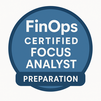


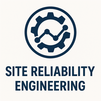
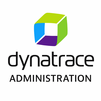
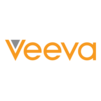




 Join our Live Instructor-Led online classes delivered by industry experts
Join our Live Instructor-Led online classes delivered by industry experts